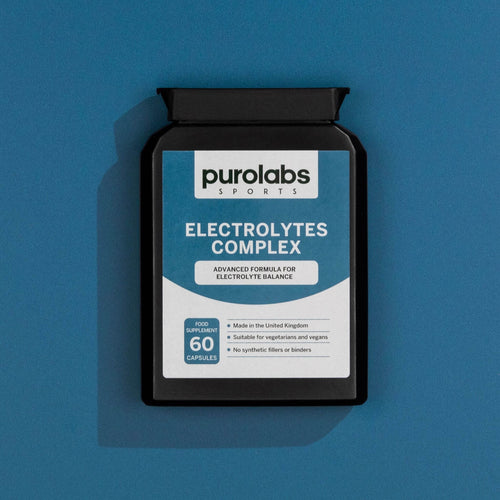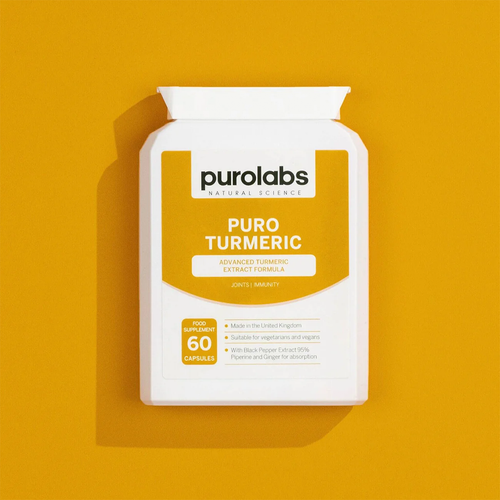The British Heart Foundation estimates that approximately 7.6 million people in the UK are living with heart and circulatory diseases, and a staggering 1 in 14 people globally are diagnosed with a heart-affecting medical condition1.
Cardiovascular disease is a prevalent global threat, with it reaching the top of the list when it comes to chronic non-infectious lifestyle diseases. The World Health Organisation reports that cardiovascular disease is the leading cause of death globally and has claimed that tobacco use, unhealthy diet, excessive alcohol use and physical inactivity are all big contributors to the disease2.
Genetics, environment, and diet all require addressing when it comes to heart health in order to reduce risk3 with all elements working together to support healthy heart, artery and blood function.
It is reassuring to know that your diet can impact all aspects of your health, and adding a few daily antioxidants, and heart-boosting foods can make a monumental impact. I will also discuss which foods to limit when supporting cardiovascular health, as there are a few essential dietary culprits to watch out for…
High Potassium Foods
Potassium is a mineral electrolyte that is required by the body to be able to function optimally.

Electrolytes Complex
Potassium is needed for every single heartbeat we have throughout our lives and is crucial to help reduce and prevent hypertension (high blood pressure). Without potassium, our hearts simply could not beat, making this mineral essential for healthy cardiovascular output.
What’s great about this mineral is that it is abundant in many fruits and vegetables and our daily intake of potassium can easily be met by consuming our ‘5-a-day’.
Potassium is particularly high in5:
- Wholegrains
- Bananas
- Legumes
- Avocados
- Mushrooms
- Leafy greens
- Butternut Squash
Healthy fats
Healthy fats are commonly associated with heart health and for good reason.
Fatty fish, otherwise known as ‘SMASH’ fish, are potent antioxidants and help to support cardiovascular health by improving triglyceride levels, reducing blood clots and helping to support arterial health. What fatty fish are known for best is their effects on heart contractions, which are key for managing blood pressure and help to reduce clogged arteries which potentially lead to coronary heart disease6.
SMASH fish include:
Salmon
Mackerel
Anchovies
Sardines
Herring
The Mediterranean diet which is plentiful in monounsaturated heart-loving healthy fats has been shown to help lower cholesterol, reduce visceral (belly) fat and combat inflammation. These factors all help to reduce the risk of cardiovascular disease7.
Consider implementing a few key dietary tips from the Mediterranean diet by upping your intake of olive oil, fruits, vegetables, legumes, nuts, seeds and fatty fish. This diet champions natural whole food intake with plenty of heart-healthy cholesterol-reducing fibre.
If you need further persuading to try the Mediterranean diet, it also allows for (moderate) alcohol consumption with the odd glass of red wine thrown in for good measure.
Wholefoods
A diet abundant in whole foods is a fantastic way to not only reduce the risk of cardiovascular disease but to promote overall health and wellbeing.
It is naturally anti-inflammatory, great for gut health, provides us with the nutrient intake we require and is just so nourishing to the soul.
For heart (and overall) health. Up your intake of:
- Nuts and seeds
- Leafy greens
- Wholegrains
- Fruits and vegetables
- Plant protein – Legumes, beans
A varied wholefoods diet is also rich in phytochemicals, which is a group of plant compounds which have proven disease preventative properties8. What is not to love about a whole foods-rich diet?
Antioxidants
Inflammation in the body through our diet, for example, has been shown to be linked to poor artery health and atherosclerosis (blocking of the arteries). By-products of inflammation produce sticky molecules that travel through the blood and stick to walls within our arteries and veins. Antioxidants help to mop up the oxidative damage that occurs through inflammatory processes and helps reduce the opportunity for those sticky molecules to form9.
A good rule of thumb to consider when adding more antioxidant-rich foods to your diet is to look at the vibrancy of the colour of the produce. Beetroots, for example, are a vibrant rich deep red/purple which reveals their potent antioxidant capacity. The deeper and richer the colour, the more it has been protected from the sun, therefore containing higher amounts of antioxidants.
High antioxidant foods include10:
- Cocoa
- Turmeric
- Berries (cranberries, blueberries, raspberries)
- Carrots
- Tomatoes

Turmeric
Foods to Watch Out For
We have mentioned anti-inflammatory foods and heart-healthy fats throughout this article, and although these foods are key for heart health, limiting the intake of foods that increase cardiovascular disease is equally important.
Processed foods are a significant contributor to cardiovascular disease as they have a high sodium content which has been noted as one of the main drivers of hypertension and coronary heart disease11. Processed foods also contain inflammatory chemicals and preservatives which negatively impact heart health.
Processed foods include:
- Smoked meats
- Pre-packaged ‘microwave’ meals
- Cookies/cakes/biscuits/pastries
- Chocolate/ice-cream
- Seed oils
The NHS states that adults should not have more than 30g of free (refined) sugars daily, which equates to 7 sugar cubes12. Last year alone, UK consumers spent a staggering £12.7 million on sugar-filled goods, making this addictive substance a hard habit to break13.
High sugar intake can affect our heart health as studies have shown that a high sugar diet stimulates the liver to ‘dump’ harmful fats into the bloodstream and clog arteries, as mentioned above. Sugars in the form of whole fruits aren’t harmful as it is unprocessed, contain nutrients and fibre and are more digestible than processed sugars i.e., cane sugar, honey, agave etc.
It is also important to consider lifestyle factors that largely contribute to cardiovascular disease. Stress, inactivity, smoking and excessive alcohol consumption all need evaluation in order to tackle the disease and prevent it from ‘all angles’.
To Conclude…
Many risk factors associated with cardiovascular disease can be mediated through our dietary and lifestyle choices. Consider upping your fruit and vegetable intake, limit highly processed foods, reduce free sugar intake and add a few healthy servings of heart-loving fatty fish.
Focus on antioxidant foods, by adding deep rich colourful produce to your diet and focus on a diet rich in home-cooked whole foods.
As with any health change, healthy habits can take time to build. Focus on cooking meals, add colour to them and keep food intake as natural as possible, with no added salt.

 Beauty
Beauty
 Bone Health
Bone Health
 Brain Health
Brain Health
 Energy
Energy
 Eye Health
Eye Health
 Gut Health
Gut Health
 Hair
Hair
 Hormonal Health
Hormonal Health
 Heart Health
Heart Health
 Immunity
Immunity
 Joints
Joints
 Menopause
Menopause
 Pregnancy
Pregnancy
 Kids
Kids
 Sleep
Sleep
 Stress & Mood
Stress & Mood




















